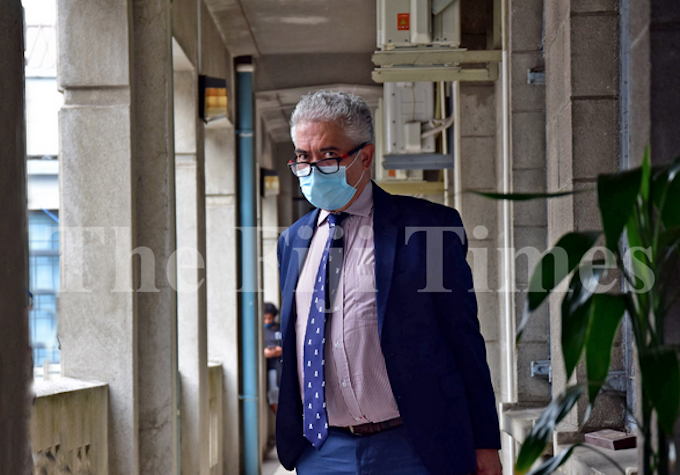
By Ian Chute in Suva
Fiji lawyer Jon Apted was yesterday accused of contempt of court for comments made in court two weeks ago while defending his client, lawyer Richard Naidu.
Gul Fatima, the lawyer for Attorney-General Aiyaz Sayed-Khaiyum, told the High Court yesterday that Apted had said that if evidence could not be challenged in court proceedings, “that would be a kangaroo court”.
She claimed that Apted’s comments were “contempt in the face of the court”.
- READ MORE: Wadan Narsey: Shameful silences over another unfolding tragedy in Fiji
- Other reports on the contempt of court case
“What this means is that there was an officer of the court present in court on October 14, who made a statement to mean, that if this honourable court were to decline orders being sought, this honourable court would be a kangaroo court,” she said.
“Invariably kangaroo courts are not run by presiding judicial officers, with respect, they would be run by kangaroos.
“So the ordinary Fijian reading this article receiving the news in respect of this decision would hold a certain view about this court.”
Fatima asked whether Justice Jude Nanayakkara wanted to launch committal proceedings under Order 52 of the High Court rules of his own motion or refer Apted to any other body.
Application refused
She said the A-G had the right to consider issuing proceedings against Apted in respect of his comment.
Justice Nanayakkara said a matter of contempt in the face of court should go before another judge and that Fatima could inform the court registry.
Justice Nanayakkara yesterday refused Naidu’s application to cross-examine Attorney-General Aiyaz Sayed-Khaiyum at the hearing of his contempt of court case, scheduled for next month.
He said that Naidu was given full opportunity to defend the alleged contempt or to respond to the alleged contempt by filing an affidavit in reply, denying the allegation or providing some explanation.
“At the hearing of the application if he expresses a wish to give oral evidence on his behalf, he shall be entitled to do so,” he said.
“The court had adopted a sound and pragmatic approach which balances the rights of both the applicant and the respondent.”
Justice Nanayakkara said the cross-examination could be largely directed to a collateral purpose and would, therefore, operate unfairly against the A-G.
He said a “clear line” needed to be drawn between acceptable criticism of the judiciary and statements that are downright harmful to the public interest by undermining or ridiculing the legitimacy of the judicial process.
Ian Chute is a journalist with The Fiji Times. Republished with permission.











































